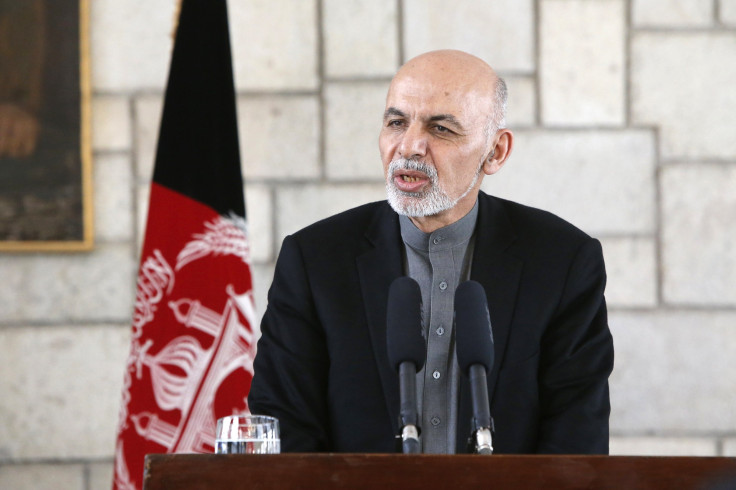Afghan Government, Taliban Clash On Peace Talks 'Rumors'

Peace talks between the Afghanistan government, the Pakistani military and the Taliban could be going on behind the scenes in Qatar, Afghan officials hinted to local media on Tuesday. A day earlier, Afghan President Ashraf Ghani said the country “was moving in the right direction” for negotiations -- but the Taliban disagrees.
While chairing a meeting of the council of ministers, Abdullah Abdullah, the chief executive of Afghanistan -- a new position created last year -- said Afghans would be kept well informed throughout the process of peace talks and that “national interests” would be protected, according to Afghan news network Pajhwok. He added that Taliban leaders had expressed their willingness to negotiate with the government.
Despite claims from Afghan officials, the Taliban, which refers to itself as the Islamic Emirate of Afghanistan, publicly denied Abdullah’s claim and reiterated its mandate of “ending the occupation” and “attaining independence” in the country. For the past few months, the Taliban has been taking meetings with foreign governments and aiming to transform itself from an “armed insurgency” into a legitimate governing body, different from Afghanistan’s national unity government.
“The central goals of the Islamic Emirate are, attaining independence, establishing an all Afghan-inclusive Islamic government and peace for our countrymen,” according to a Taliban statement released on the group’s website Tuesday. “There have been many rumors swirling around in the media lately about the latest developments in Afghanistan and negotiations with the Kabul administration, these are nothing more than the views and assumptions of these outlets. We have repeatedly declared that every report which is not published or confirmed by the official channels of Islamic Emirate are false and hold no value.”
The group claimed to have sent a delegation to China earlier this month to discuss the Taliban’s plan to legitimize itself as a governing body. It also claimed to have done the same with other “world countries” to increase the group’s political presence on the global stage, according to the statement.
China’s state-run media reported that there were rumors of China receiving a Taliban delegation in November, but the Chinese Foreign Ministry denied those claims earlier this month and affirmed that Beijing would support an "Afghan-led and Afghan-owned" process in the wake of the United States’ departure from Afghanistan.
"China not only increased its amount of financial aid to Kabul, but also sought to include Afghanistan in regional security frameworks such as the Shanghai Cooperation Organization," Fu Xiaoqiang, an expert on South Asian studies at the China Institutes of Contemporary International Relations, told China Daily last week. "Beijing and Kabul working together on security issues aims at seeking solutions to guarantee a smooth process of post-conflict state-building.”
The Afghan branch of the Taliban has transcended the label of “terrorist group,” and is now referred to as an “armed insurgency” by the United States. In the 1990s the group was able to govern nearly the whole country, but their territorial hold decreased after the 2001 U.S.-led invasion.
Since then, the group has carried out attacks in Afghanistan and Pakistan, trying to regain territory now controlled by the Afghan military, which is supported by the U.S. Unrest in the country has also paved an entryway for the Islamic State group, better known as ISIS, which declared ownership of a part of Afghanistan last month. Many of ISIS’s leaders in this new “province” are former Taliban leaders who have defected.
The U.S. and NATO forces ended their official combat mission in Afghanistan at the end of last year but the alliance launched Operation Resolute Support on Jan. 1, 2015, to continue assisting Afghan troops. The U.S. launched its first airstrikes targeting Taliban members in mid-January. Weeks later, NATO officials confirmed the alliance's first drone strike in Afghanistan, which reportedly killed a former Guantanamo Bay prisoner who joined the Taliban after his release in 2007, and later defected to ISIS.
© Copyright IBTimes 2024. All rights reserved.






















